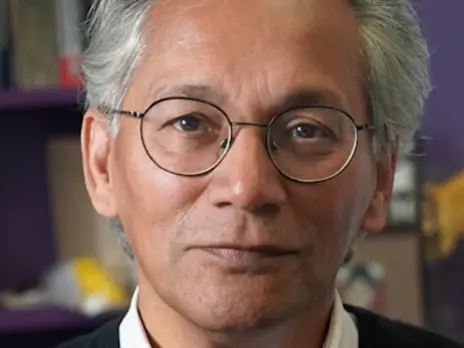Dennis Murray, BBC News’ Ireland correspondent through the final years of the ‘Troubles’to the development and implementation of the peace process, has stepped down after 20 years.
‘I can’t begin to enumerate the things that stand out,’says Murray. ‘But the Omagh bombing – 10 years ago next month – was the one that finally got to me.
‘There comes a point for every journalist when the burden’s too much,’he says. ‘I was terribly upset by it, and then I felt guilty because where the hell do I get off being upset? But the startling thing about Omagh was that I could not walk down a street without someone stopping me to tell me where they were when the bomb went off. It was as though telling you would make it better, because you were on TV.”
Time and time again Murray was called on to speak to families and people involved in attacks. ‘The long walk to the bereaved relatives’ door was the worst thing,’Murray says. ‘Some people felt the benefit of it and were really pleased to do it. Others told us to F-off.”
A journalist’s role
Keeping the public informed remained at the heart of his reporting, says Murray, and he is adamant that the journalist’s role should not stray into reconciliation territory. ‘Some journalists have a very strong view that we should be promoting peace and reconciliation,’he says. ‘I think that we all believe in peace, but I’m not so sure about reconciliation – some people can’t and some people can. And you can’t start trying to force those who don’t want to. I don’t think it’s our job to promote reconciliation.’
Murray was born in Belfast and after graduating with a first in general studies from Trinity College, Dublin, he began his career with the Belfast Telegraph in 1975 and then moved to Irish broadcaster RTE, where he stayed until1982. He then moved to the BBC, where he worked as Dublin correspondent until 1988, and then became Ireland correspondent.
In a politically and socially divided society like Belfast where Murray lives, he says remaining neutral can at times alienate you from one community or the other.
‘People always ask me: ‘How did you stay so unbiased?’ Politically speaking, it was very easy, partly because you leave your political opinions at home. And also because in every party there were people you liked, people you were neutral about, and people you strongly disliked.”
Being neutral
‘What I found much more difficult was being neutral when terrible things happened, especially when children were involved. Standing there saying ‘the IRA are running a campaign about…’ No.
There were times you had to stand there and say quite difficult things like ‘This is just sectarian'”.
The night of the Shankhill bombings, for instance, the presenter asked me: ‘Why do you think the IRA did this?’ and I had to take a deep breath and say ‘I realise in the circumstances this is going to be unpopular, but I believe the IRA’s statement that they didn’t mean to kill the ‘ordinary’ Protestant; they meant to kill the UDA inner council. However, the IRA knows well enough by now that carrying bombs and short fuses is reckless.
For the time being, Murray is ‘drawing breath’but already has ideas for a couple of documentaries and possibly a book. ‘It would be the sad, the funny, the horrific, the amusing – an anecdotal tale of one journalist’s travels through the Troubles.”
After 20 years of work in Northern Ireland, Murray says it is important not to lose sight of the important truths in any situation, regardless of the level of conflict: ‘It’s not about explosions, it’s not about bombs, it’s not about brilliant pictures – it’s about people. And the day any journalist forgets that they’ve stopped doing their job right.’
Email pged@pressgazette.co.uk to point out mistakes, provide story tips or send in a letter for publication on our "Letters Page" blog






